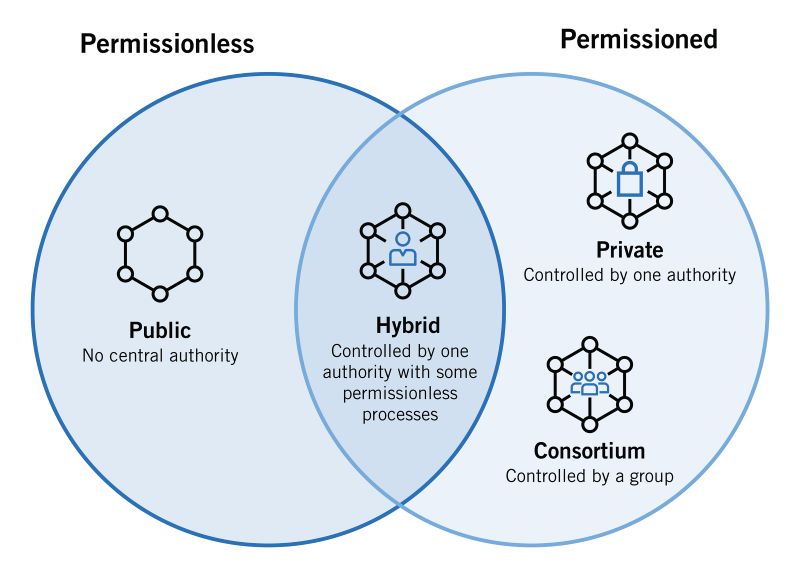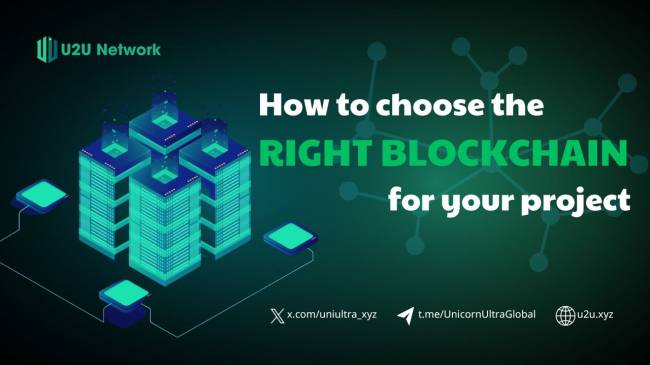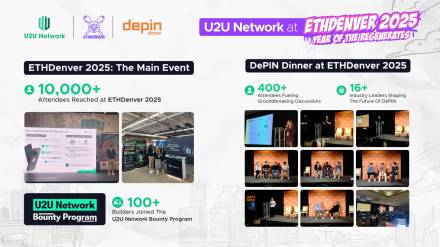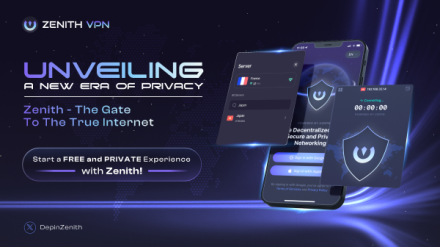In today's rapidly evolving digital landscape, selecting the right blockchain platform stands as a pivotal decision that can profoundly influence the outcome of any project. The blockchain technology chosen not only defines the technical framework but also shapes the project's scalability, security, and overall success.
Table of Contents
The Importance of Choosing the Right Blockchain
Choosing the appropriate blockchain platform is crucial as it determines the project's ability to scale, maintain security, and achieve decentralization. These factors are foundational to the functionality and longevity of decentralized applications (dApps) and blockchain-based solutions.
The Blockchain Trilemma
At the heart of blockchain technology lies the blockchain trilemma, a concept highlighting the challenge of achieving optimal balance among decentralization, security, and scalability. Different blockchain platforms prioritize these aspects differently, with some favoring decentralization and security over scalability, while others seek to enhance scalability without compromising security or decentralization.
The Rise of Alternative Blockchains
Beyond the pioneering examples of Bitcoin and Ethereum, the blockchain landscape has witnessed an explosion of alternative platforms. Each offers unique features and advantages tailored to specific use cases, ranging from public ledgers to private, permissioned networks, and hybrid solutions.
U2U Network as a Contender
Among these emerging platforms, U2U Network stands out as a promising contender. Focused on enterprise solutions and scalability, U2U Network leverages advanced blockchain technologies to address the challenges posed by the blockchain trilemma. By prioritizing robust infrastructure and scalable solutions, U2U Network aims to empower businesses and developers to build secure, efficient, and adaptable blockchain applications.
Evaluating Blockchain Platforms
Public vs. Private vs. Consortium Blockchains
Public Blockchains: These are open, permissionless networks where anyone can participate as a node, validate transactions, and contribute to the network's consensus. Bitcoin and Ethereum are prime examples. They offer high levels of decentralization and censorship resistance, making them ideal for applications that prioritize trustlessness and transparency. However, they often face scalability challenges and can have higher transaction fees.
Private Blockchains: These are closed networks where access and participation are restricted to authorized entities. They offer greater control and privacy, making them suitable for enterprise applications that require confidentiality and compliance. However, they may lack the decentralization and trustlessness of public blockchains.
Consortium Blockchains: These are a hybrid model where a group of pre-selected organizations collectively manage the network. They offer a balance between decentralization and control, making them suitable for collaborative projects between trusted parties.

Consensus Mechanisms
Proof of Work (PoW): This energy-intensive mechanism requires miners to solve complex puzzles to validate transactions and add blocks to the chain. While secure, it is often criticized for its environmental impact and scalability limitations.
Proof of Stake (PoS): In this mechanism, validators are chosen to create new blocks based on the number of coins they "stake" or lock up as collateral. PoS is generally more energy-efficient and scalable than PoW but may raise concerns about centralization.
Delegated Proof of Stake (DPoS): A variation of PoS where token holders vote for delegates to validate transactions. DPoS can achieve high throughput but may be less decentralized than PoS.
Other Consensus Mechanisms: Innovative mechanisms like Proof of Authority (PoA) and Proof of History (PoH) are being explored for their potential to improve scalability and efficiency. U2U Network, for instance, employs a DAG-based consensus mechanism that offers high throughput and low latency.
Smart Contract Functionality
Smart Contract Languages: Evaluate the available smart contract languages (Solidity, Vyper, Rust, etc.) based on their expressiveness, security features, and ease of use.
Platform Capabilities: Consider the features and tools provided by the blockchain platform for developing, testing, and deploying smart contracts.
Compatibility with Existing Tools: Check if the platform integrates with popular development environments and libraries
Interoperability
Cross-Chain Bridges: Assess the availability of bridges or protocols that allow your chosen blockchain to interact with other blockchains, expanding its reach and functionality.
Token Standards: Check if the platform supports standard token formats (like ERC-20 or BEP-20) for easier integration with other applications and exchanges.
Community and Ecosystem
Developer Community: A vibrant and active developer community is essential for ongoing support, innovation, and troubleshooting.
Tools and Libraries: A rich ecosystem of developer tools and libraries can significantly accelerate development and reduce time-to-market.
Adoption and Partnerships: Look for platforms that are being adopted by businesses and organizations, as this can indicate a strong future and potential for growth.
How to choose the right blockchain for your project
Use Case Suitability:
Evaluate whether the blockchain platform aligns with the specific use case and requirements of your project. Consider factors such as scalability needs, transaction speed requirements, data privacy, regulatory compliance, and the level of decentralization required.
Consensus Mechanism:
Understand the consensus mechanism employed by the blockchain platform (e.g., PoW, PoS, DPoS) and assess its implications on security, scalability, energy efficiency, and decentralization. Choose a mechanism that best fits your project's goals and operational needs.
Security Features:
Assess the security features and protocols implemented by the blockchain platform to protect against potential vulnerabilities, attacks, and unauthorized access. Look for features such as encryption, multi-factor authentication, auditing tools, and robust smart contract security mechanisms.
Scalability and Performance:
Evaluate the platform's scalability capabilities in terms of transaction throughput, latency, and network congestion handling. Consider whether the platform can accommodate future growth and increased transaction volumes without compromising performance.
Developer Tools and Support:
Check the availability and functionality of developer tools, SDKs, APIs, and comprehensive documentation provided by the platform. A rich ecosystem of development resources can facilitate easier integration, debugging, and deployment of applications.
Interoperability and Integration:
Assess the platform's ability to interoperate with other blockchain networks, protocols, and existing enterprise systems. Look for support for interoperability standards, cross-chain communication protocols, and compatibility with popular tools and frameworks.
Community and Governance:
Consider the size, activity, and supportiveness of the platform's developer community. A vibrant community can provide valuable support, collaboration opportunities, and ongoing development of the ecosystem. Additionally, understand the platform's governance model and how decisions are made regarding protocol upgrades and changes.
Regulatory Considerations:
Evaluate how the platform addresses regulatory compliance requirements relevant to your jurisdiction and industry. Consider features such as identity verification, data privacy measures, and compliance with financial regulations if applicable.
Costs and Sustainability:
Assess the economic model of the blockchain platform, including transaction fees, gas costs (if applicable), and any associated costs for using platform features. Consider the long-term sustainability of the platform's economic incentives and its impact on operational costs.
Adoption and Ecosystem Support:
Research the adoption rate of the platform among enterprises, developers, and other stakeholders. Evaluate partnerships, collaborations, and existing applications built on the platform to gauge its ecosystem maturity and potential for growth.
U2U Network: A Versatile Blockchain Solution
Overview of U2U Network
U2U Network is a cutting-edge blockchain platform that leverages Directed Acyclic Graph (DAG) technology to deliver high throughput, low latency, and scalability that surpasses traditional blockchains. Its compatibility with the Ethereum Virtual Machine (EVM) allows seamless integration with existing Ethereum-based applications and tools, making it an attractive option for developers and businesses alike. With a strong focus on enterprise solutions, U2U Network provides a robust and secure infrastructure for building decentralized applications (dApps) across various industries.
Benefits for Different Use Cases
U2U Network's unique combination of features makes it a versatile platform that can cater to a wide range of use cases:
- Decentralized Finance (DeFi): The high throughput and low latency of U2U Network enable fast and efficient transactions, making it ideal for DeFi applications like decentralized exchanges, lending platforms, and yield farming protocols.
- Supply Chain Management: U2U Network's immutability and transparency features allow for secure and traceable tracking of goods throughout the supply chain, reducing fraud and ensuring product authenticity.
- NFT Marketplaces: The platform's scalability and low transaction fees make it a suitable foundation for NFT marketplaces, enabling the creation and trading of digital assets with ease.
- Enterprise Solutions: U2U Network's focus on enterprise-grade solutions provides businesses with the tools and infrastructure they need to build and deploy custom blockchain applications for various use cases, including identity management, data sharing, and process automation.
Choosing the right blockchain platform for a project is crucial, as it determines the project's scalability, security, and overall success. Factors such as use case suitability, consensus mechanism, security features, scalability, developer support, interoperability, community governance, regulatory compliance, economic sustainability, and ecosystem adoption must all be carefully evaluated. Each of these considerations plays a significant role in determining how well a blockchain platform aligns with the specific needs and goals of a project.
U2U Network emerges as a promising contender in the blockchain space, particularly for enterprise solutions and scalability. Initially introduced as a blockchain project exploring innovative solutions, U2U Network has evolved to integrate advanced consensus mechanisms like DAG (Directed Acyclic Graph), prioritizing high throughput and low latency. This technological advancement positions U2U Network as a robust platform for applications requiring fast transaction processing and scalability.
Moreover, U2U Network's commitment to enhancing security measures and providing comprehensive developer tools underscores its readiness to support complex decentralized applications. By fostering a supportive developer community and promoting interoperability through cross-chain compatibility, U2U Network facilitates seamless integration with existing systems and frameworks.
In conclusion, when considering how to choose the right blockchain for your project, evaluating platforms like U2U Network that offer scalability, security, developer support, and ecosystem integration can provide a solid foundation for building innovative and sustainable decentralized solutions. As blockchain technology continues to evolve, platforms like U2U Network demonstrate the potential to drive forward the next wave of blockchain adoption across various industries.





.png)
